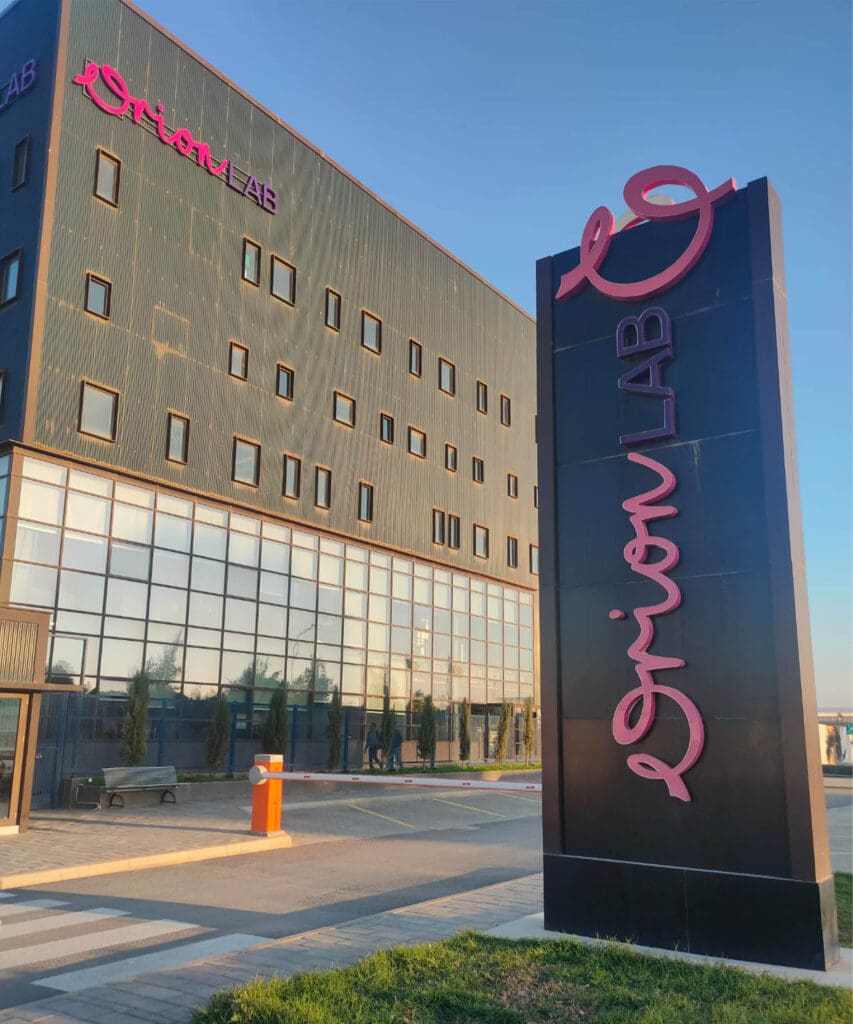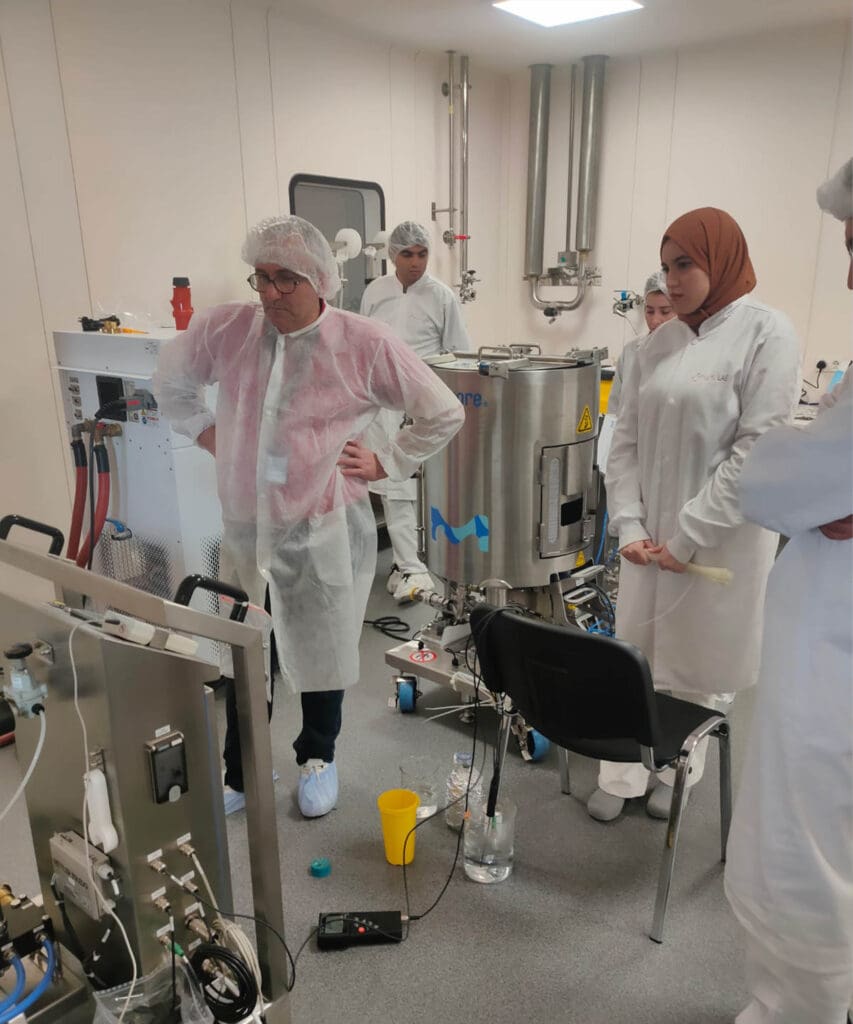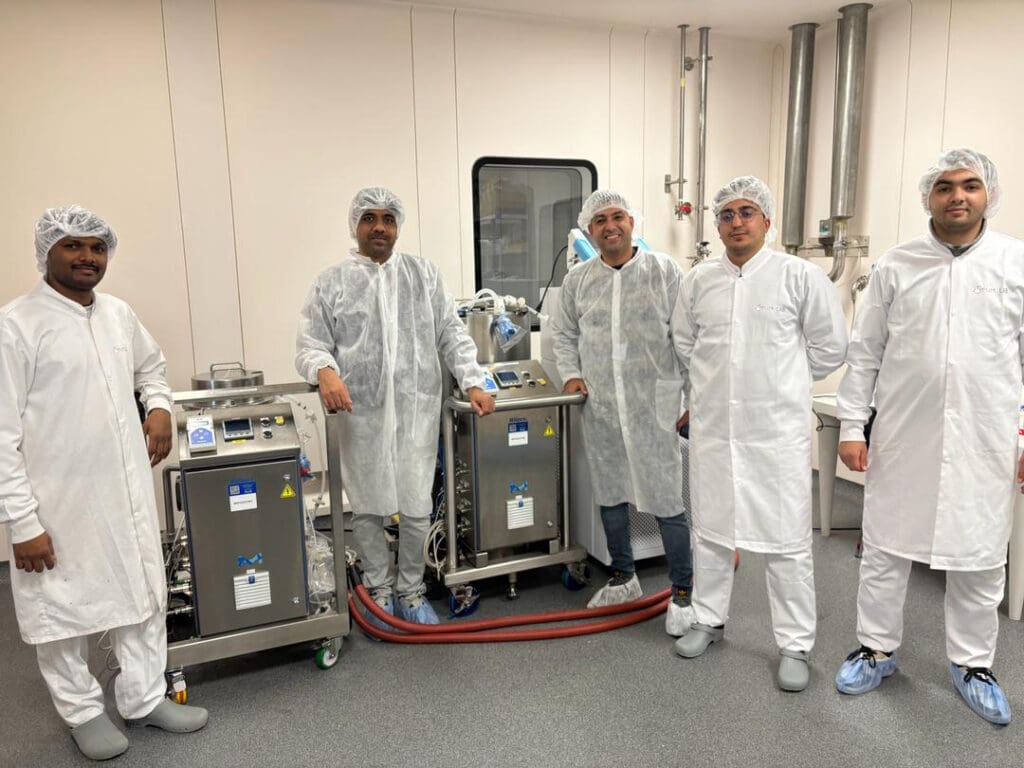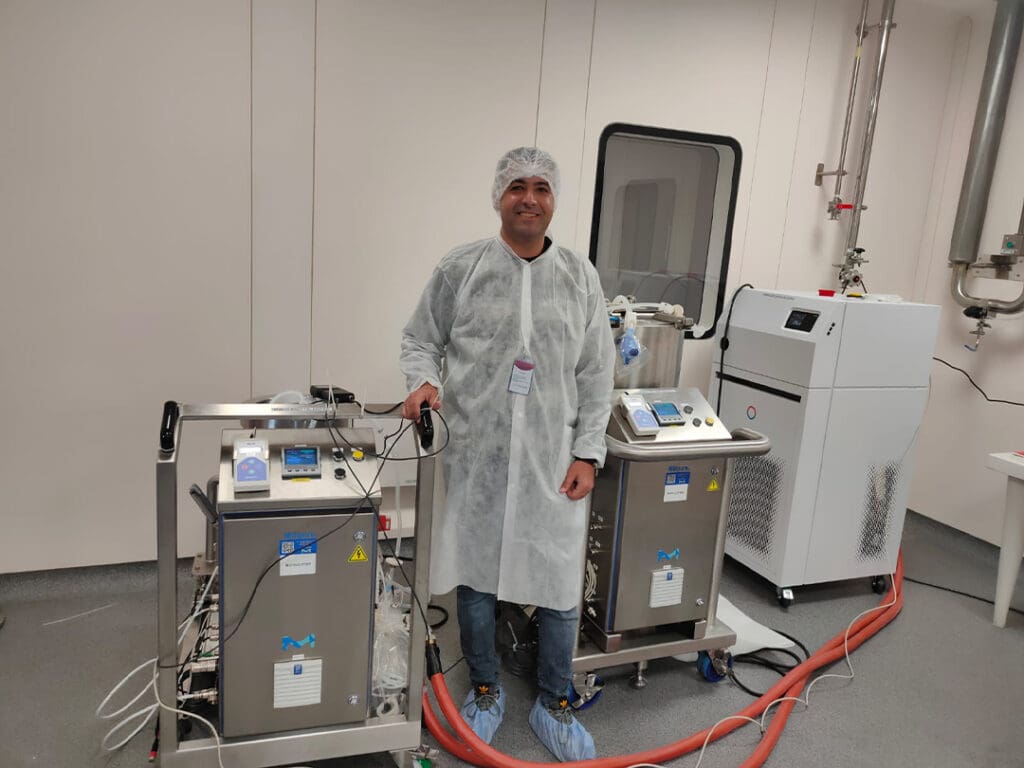Noor Newsletter February 2024
TOP NEWS:




Noor Scientific & Trade (local representative of Merck in Egypt) used to provide after-sales services to Merck customers in the Middle East, Africa and Arab region at a request from Merck. The most recent task was to install and initially operate a Mobius Single-Use Mixing System in Orion Lab (a pharmaceutical laboratory created in 2017, located in Oran – Algeria). One of Noor’s highly qualified and well-trained service engineers spent few days to complete the task in the customer place in Algeria.
The Mobius® Single-Use mixing solution delivers advanced technology for mixing pharmaceutical ingredients from intermediate to final drug products and for the preparation of process solutions, such as buffers and media. These proven, scalable, ready-to-use systems and processing technologies reduce the risk of contamination, improve economic and processing flexibility, and deliver reproducible results.
Celebration
World Rare Disease Day
Rare Disease Day is observed on the last day of February each year. It takes place worldwide, to raise awareness among policymakers and the public about rare diseases and their impact on patients’ lives. There are over 7,000 known rare diseases that affect approximately 400 million people worldwide. 80% of these diseases have genetic origins and 50% affect children. The World Health Organization defines a rare disease as one that strikes fewer than 65 per 100,000 people. In the European Union, a rare disease is one that affects no more than 1 person in 2,000. In Egypt, there is no specific definition of “Rare Diseases” in the procedures and standards of the Egyptian Ministry of Health and Population (MoHP). Egypt is following the European Union’s definition of rare diseases. “Rare Disease Day Organization”

Product Of The Month
Portable wireless hardness tester e-computest
Light force wireless portable hardness tester e-computest is a light force (5kgf) electronic hardness tester, which operates according to the Rockwell principle and allows the hardness of the entire range of ferrous and non-ferrous metals to be measured without changing the indenter. Simply select the desired scale and place the base of the instrument on the surface to be tested, preparing the test area accordingly. The measurement is obtained by exerting a manual pressure of 5 kgf with immediate display of the detected hardness value. The e-computest portable hardness tester can operate in different positions and is equipped with various support bases, easily interchangeable to adapt to the different shapes of the samples to be measured. In the new version e-computest uses a tablet suitable for the industrial environment. The Android application offers the possibility of detecting, managing, sharing, archiving and printing data in a simple and immediate way. In addition, e-computest can be used with a stand, specifically designed to perform tests of all those pieces where support is required and of small samples.
– Portable miniaturised Rockwell hardness tester = On-site measurement of pieces of any size.
– Adjustable in all directions = Savings on handling and cutting costs.
– 1 diamond indenter for the entire range of metals = Speed and simplicity of the testing process.
– Testing is not affected by any yielding or bending = Reliable results in all test conditions.
– ACCREDIA certification (ILAC MRA-Mutual Recognition Arrangements) = Offers a competitive advantage in markets where certification is required.

Monthly Forum
Egypt ranks 22nd in global Climate Change Performance Index (CCPI)
The index, issued by the German Watch corporation, highlighted measures adopted by Egypt to expand investments in renewable energy projects, including encouraging reliance on solar and wind energies.Climate Change Performance Index (CCPI) is an annual publication by Germanwatch, the NewClimate Institute, and Climate Action Network International. It evaluates the climate protection performance of 63 countries and the EU, which are together responsible for over 90% of global greenhouse gas emissions.
The Egyptian Cabinet’s Information and Decision Support Center (IDSC) added that Egypt came second in the Middle East and North Africa, following Morocco. “ahramonline”

Scientific Facts
Soil is full of life:
Soil is the loose surface material that covers most land. There are more microorganisms in one teaspoon of soil than people on the planet. Many people don’t realize that soil, especially healthy soil, is full of life.
Millions of species and billions of organisms make up a complex and diverse mix of microscopic and macroscopic life that represents the greatest concentration of biomass anywhere on the planet. “National Resources Conservation Services”

History of Science
Batteries: The first battery dates back to 1800, when Italian physicist Alessandro Volta wrapped stacked discs of copper and zinc in a cloth, submerged it in salty water and discovered that it conducted energy. In 1802, Scottish professor William Cruickshank invented a variation of Volta’s design known as the trough battery, which consisted of 50 discs of copper and zinc in a wooden box filled with a salt solution to conduct energy. However, it was French physicist Gaston Planté who invented the first practically used battery, in 1859. Modern variations on Planté’s rechargeable lead-acid battery are still used in cars today. “LiveScience”
